 I, like many sewers, have a few machines in my “stable”. It was time to clean house.
I, like many sewers, have a few machines in my “stable”. It was time to clean house.
My mom’s Featherweight…nope, can’t get rid of that one.
My day-to-day machine…always in use. That one stays put.
Back in the corner of the closet is a familiar case—a faded plastic cover over a machine I remember well. I step in and pull the machine to the front. Lifting the cover, I can’t help but smile. Here is my New Home machine—the first machine I’d ever purchased for myself.
I bought it when I was first married and pregnant with our son. I remember sitting down at the machine for the first time and how intuitive I found it to be. When Alec was a little more than a year old, I was looking for a winter coat to keep him cozy in the Wisconsin winters. Not finding anything quite right, I decided to create a little coat for him. A layer of tight navy blue wool, an interior layer of soft plaid flannel, with a little insulation in between. The style was classic—a duffle coat with a hood.
Wandering Milwaukee with our little boy, people would stop me and ask where I’d gotten the coat. An idea flickering, I stopped by a children’s boutique on Milwaukee’s east side and asked if they’d be interested in carrying a few of the coats and they heartily said yes. So I began producing coats, calling my venture Days of Wonder. One of my favorite stories was that a friend of Robin Williams’ stopped by the boutique to buy a baby gift when his daughter Zelda was born. She chose one of the coats I’d made.
When we moved to Memphis the machine moved with us and I sewed for a children’s boutique in Germantown, a Memphis suburb.
I run my hands over the machine, thanking it for the memories evoked. I tidy it up and drop it off at a local sewing machine shop so they can tune it up before I donate it to The Sewing Machine Project and open the door for the machine’s next chapter.
When I began The Sewing Machine Project 18 years ago, I mistakenly thought that it was simply about getting sewing machines into the hands of those who needed them. And that is certainly true. But it is so very much about the stories that accompany the machines, the stories of the people who receive them, and the stories of all of those who press their goodwill and kindness into this idea.
Thank you, old machine, for your reliability and ease. Thank you for the lives you have yet to impact–the stories you have yet to write.

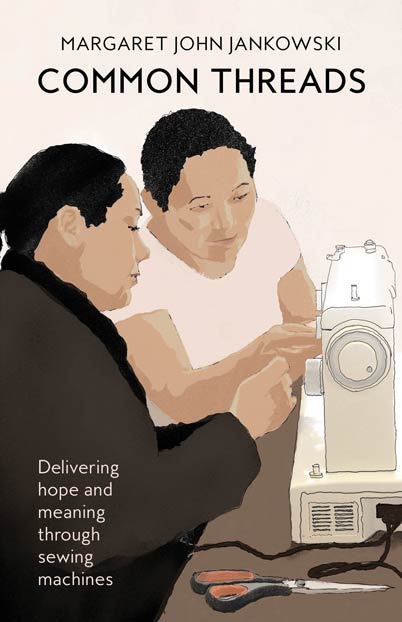
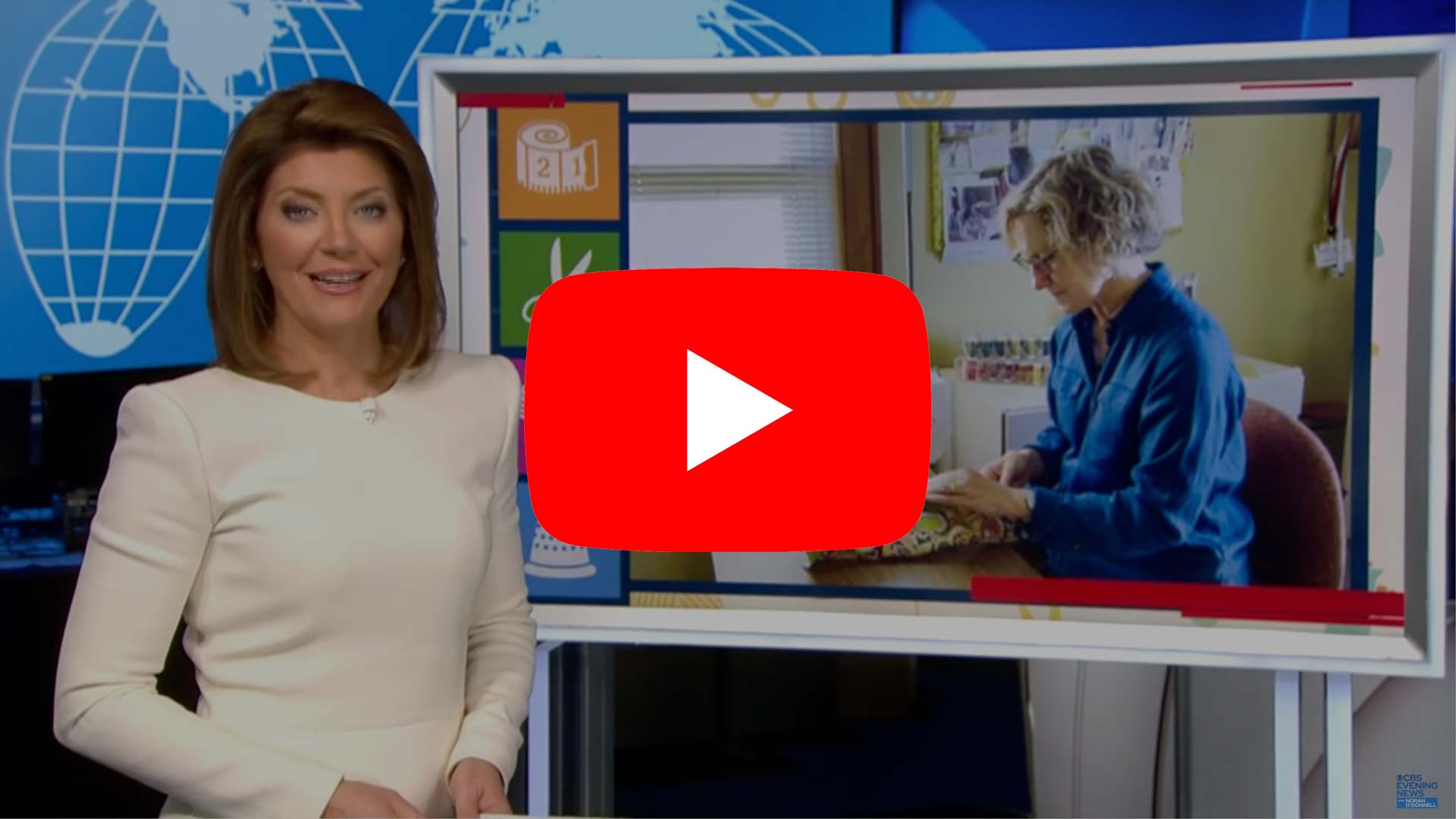
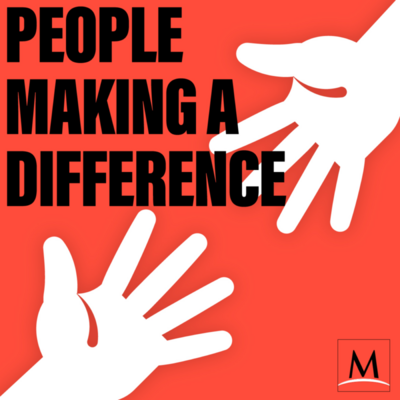
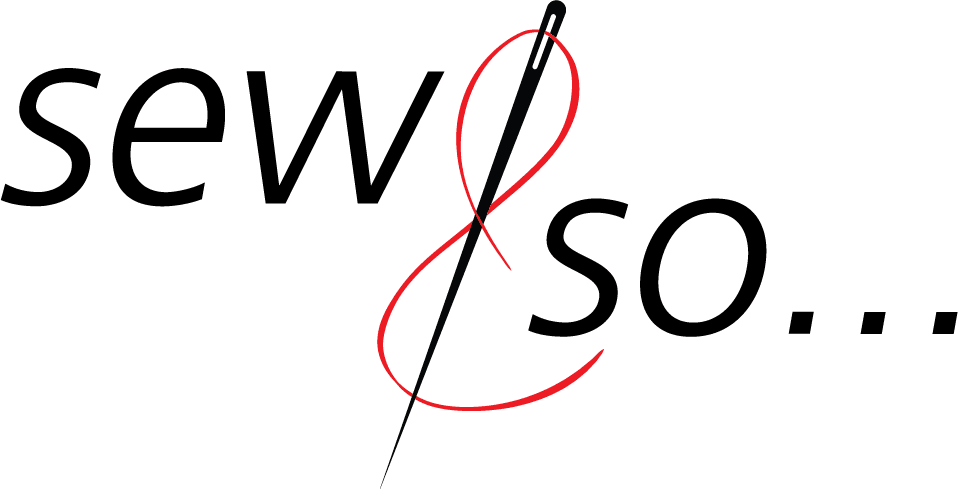
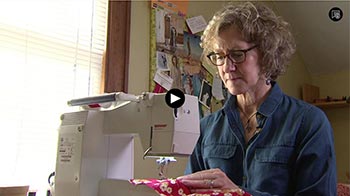
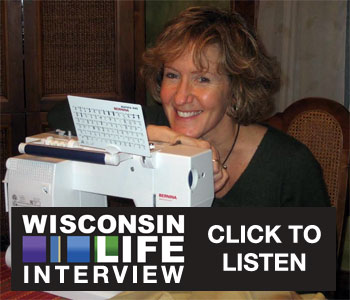
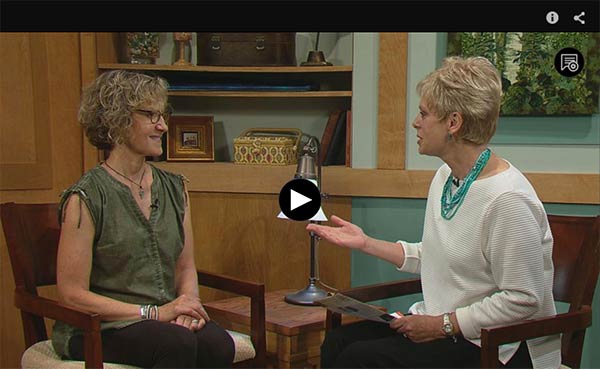
Thanks for sharing this story Margaret. Don’t we all have those stories about so many machines, those of our grandmothers’ , the ones in Mrs. White’s Home-Ec class, our roommate in college, the ones in the theatre departments, the one we found at a garage sale have impacted us and impacted others before and after we were able to use them. And yes! Here’s to moving them on. Spreading the love and the stories ahead!
Beautiful story. Thank you for sharing your talents with the world, and for creating this wonderful program to donate machines.
Can you tell me do you need thread as I have some to donate
Thank you for your wonderful story
Ccan donate one babylock serger not new but still works and have book
Hi Linda,
We do take thread but it needs to be new. Older thread, we’ve found, becomes brittle and breaks during sewing. To ensure the best chance of success for those to whom we donate, we take and donate only newer thread.The serger is fine as well as long as it is in excellent working order. Thanks so much!
Polyester thread does not get old. I use in it children’s clothing for strength.
Hi Alice, thank you for this information. Threads vary by content, age and make. We find that it reduces the amount of waste if we ask for newer thread.
I am in California. Where may I donate?
Greetings, Thanks for your message. We do not have a collection site in California.You are welcome to ship your machine to our base in Wisconsin. If that is too costly or cumbersome, I encourage you to seek out groups in your area that may need your sewing machine. Thank you for your kindness!
Great work i would love to join your team for your training and support.
I have a machine to donate, possibly 2.
My mom bought hers in 1973 without telling my dad first. It’s a Singer and cost $200. He thought it was a wonderful thing. Mom sewed clothes and the most beautiful Christmas ornaments. She bought Simplicity patterns and taught me how to run the machine when I had a home ec class in 7th grade.
The second machine is a (non electric) black cast iron pedal machine used by my husband’s grandmother. It comes with many zipper foot attachments.
Both need new homes. Pls notify me in a follow up comment of places wanting the non-electric machine.
Hi Pam, as long as the electric Singer is in excellent working order, you are welcome to donate it to the SMP. I appreciate your fond memories of the machine–they carry so much history!
I don’t have a suggestion, unfortunately, for the treadle machine. We are unable to accept them. Not knowing where you’re located, I’m not sure what’s in your area. Pedals for Progress in New Jersey takes machines to send internationally and we have a group here in Madison that arranges containers to go to Honduras but a treadle machine is a bulky heavy thing so you will most likely want to look for a group in your area. Thank you!
I am interested in the no electric machine
We are currently working with nonprofit groups in our sewing machine donations. I suggest you check local thrift stores or Craigslist to find a sewing machine. Best of luck.
Is there a chapter in the San Francisco, California area?
Hello! We are based in Madison, WI. While we serve groups all over the country, we do not have chapters, as such.
perhaps you can start a chapter with several women meet once month or what ever you want
I belong to several group and we meet in Sew What and volunteer to make pillow cases for children at Neumounrs alot of fun
Days for girls making ssanitary producxts for girls in other cxountries alot of fun We meet once amonth
Hi Ellen, Thank you for the suggestion. Given our size and mission, we are supporters of groups that are formed to help people–we offer the tools to do so. We aren’t really set up to create and manage groups but are happy to support groups that are formed by others!
Im sure your works is busy and helping others always a blessing
Enjoy and Good Luck
Rosa Mystica business institute located in Uganda trains young people in tailoring and other skills. We wish to know if we can get some sewing machines.
Greetings, We are currently working with nonprofits within the United States. I suggest that you research charitable groups that are currently working in your area and reach out to them for support.
Do you have a location near Mobile, AL ??
We work out of Madison,WI. If you wish to donate a machine, you are welcome to ship it to our address in Wisconsin. There’s more info on that on our donation page for machines.
https://thesewingmachineproject.org/giving/donate-sewing-machines/
This is a great story!
Thank you!
Just today (01/19/2024) I saw a segment on PBS Sewing with Nancy regarding your work. How wonderful! In a similar way, I used to teach English to immigrants . It was extremely gratifying and a source of joy as well.
I heard you were in need of sewing motions (but not thread). My mom was an avid sewer (don’t gete started!), but she’s been gone almost 12 years. I would love to donate things from her sewing box–and the box itself of that would be useful.
Please advise what items would be useful to your work and how I might get them to you.
May all your work, your volunteers, and your clients be blessed!
Hi Kathleen, Your words are such a joy to read! Please take a look at the list of items on our donation page. We run into issues because we work out of such a small space so we really need to limit our donated items to those that we’ve listed.
https://thesewingmachineproject.org/giving/sewing-supply-donations/
I hope you can find a good home for your mom’s sewing box❤️
With gratitude,
Margaret